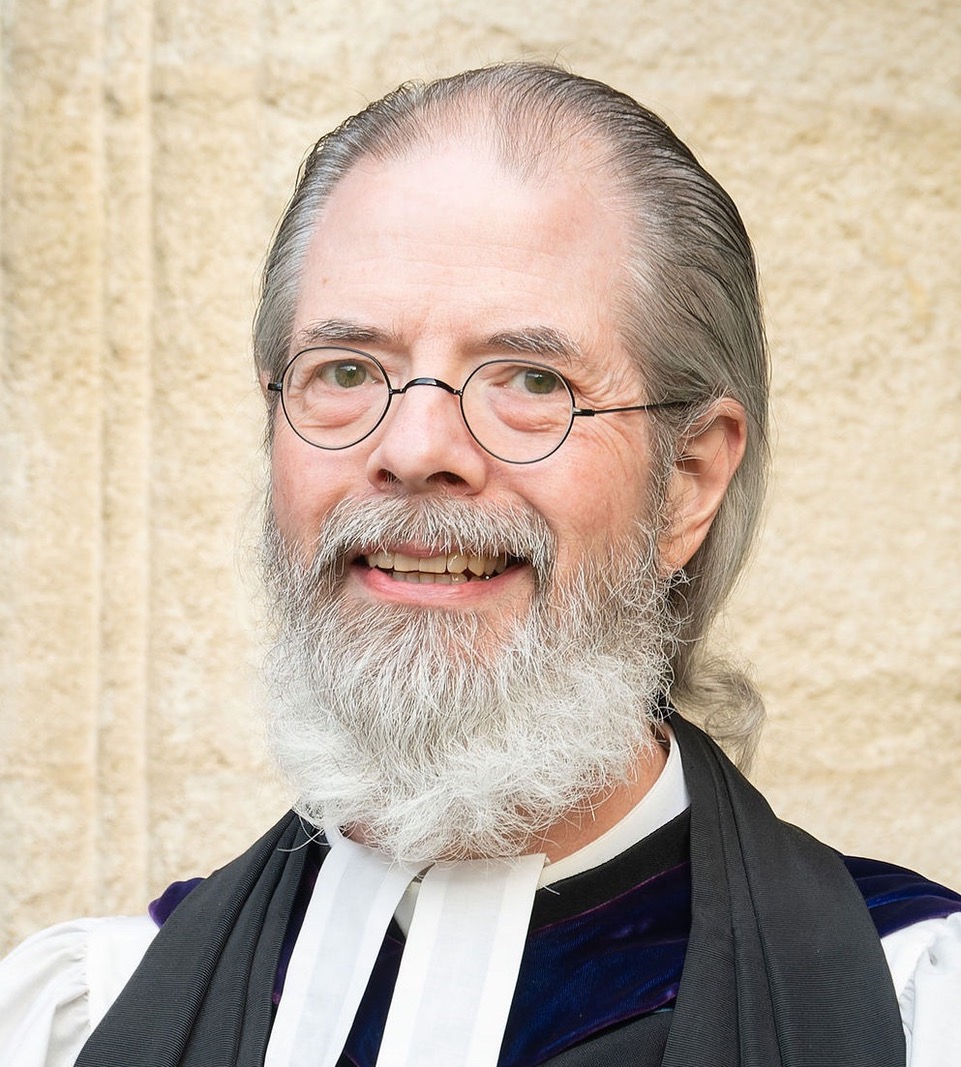Commentary on James 5:13-20
The preceding chapters in the Epistle of James have described the ideal of a congregation that lives cooperatively, harmoniously, in concord with heaven’s peaceable grace — and that repudiates wrangling, privilege, and domination.
James addresses communities more than individuals (“to the twelve tribes in the Diaspora,” 1:1), and he promotes an ethic of integrity that emphasizes building one another up. He ends the epistle with the verses from today’s lesson, an apparently somewhat miscellaneous array of exhortations.
These verses describe some of the goings-on one might expect to observe in the sort of community James has in mind. Although James uses the form of imperative verbs, the context of the whole letter warrants our reading these verses not just as an array of commands; we do well to read these also as a description of what the ideal congregation behaves like. A harmonious, mutually-concerned congregation will evince the sort of relationships James endorses here.
A congregation under the influence of James would be committed to sharing each other’s burdens and joys. In previous chapters, James envisions a community where class and poverty do not divide disciples; here, he applies the same logic to grief and illness and sin. If one member is sick, the whole congregation is weaker. Anyone who is afflicted should feel confident to ask for help from their neighbors, and the congregation’s leaders will pray on their behalf and treat them with oil (used for medicinal properties among pagan healers as well as among Jews and Christians) in the name of the Lord.
Although James does not emphasize the point here, oil was not necessarily readily available to the poorest Christians; if the elders are to anoint any member of the congregation with oil, the better-off members of the community will have to be subsidizing the poorer. James thus advocates a model of community that admits no distinctions between rich and poor, with regard to health as well as to wealth.
James also reintroduces the topic of truthfulness as an aspect of community life. Whereas in preceding passages he has focused on the destructive consequences of intemperate speech, here he emphasizes the positive necessity of telling the truth. In 5:12, he insists that disciples tell the truth at all times, to the extent that they need never take oaths (since everything they say is true).
These verses — presumably omitted from the lectionary reading to avoid controversy about oath-taking in civil life — prepare for the even more delicate topic of 5:15b and 16, where James explains that the community should sustain a high enough degree of mutual trust to confess their sins to one another. James does not, I think, consider this a punishment or a means of cult-like social control; rather, it constitutes an ingredient of the kind of common life he proposes for all Christians. Secret sins corrode our souls, but they also corrode our relationships with others. The more fully we can trust others with even our painful failings, the more readily we can share with them in the forgiveness that releases us from the power our sins hold over us.
In the cases of both physical infirmity (manifest in sicknesses) and spiritual infirmity (manifest in sins), James believes that our faithful solidarity and sharing are effectual in remedying our weakness. This is surely true in plain, common-sense ways; we care for one another by paying attention to symptoms of illness, by providing the resources for health, by guarding against irresistible temptations, by living up to others’ high expectations of us. But James also trusts that forces greater than common sense will support and amplify our well-being. Thus, in verse 19, James encourages his audience to strive to bring back a neighbor who “wanders from the truth,” which restoration will have positive effects not only for the reformed sinner but also, apparently, for those who restore the sinner to “the truth” (5:20). Confession brings with it the assurance of God’s forgiveness; prayerful anointing (“the prayer of faith,” 5:15; “the prayer of the righteous,” 5:16) will, in James’s ideal congregation, powerfully and effectually remedy both spiritual and physical ailments.
The benefits of our caring for one another are not always (we may even say not usually) immediately obvious. James therefore reminds the congregation that faithfulness requires patience (5:7-11). At the same time, James considers Elijah the example of someone who, although human in every way, wrought extraordinary effects by his righteousness and his confident prayer. By citing both the importance of patience and the actual example of Elijah, James frames his exhortation so as to underscore both the possibility of miraculous fulfillment of our prayers, and the inevitable unlikelihood that we will witness such a dramatic response.
Although the Letter of James breaks off somewhat abruptly at this point, these verses reinforce the practical working-out of the general principles that James has been expounding earlier in the letter. Through the letter as a whole, James urges his readers not simply to assent to metaphysical claims about Jesus and God, but to receive the gospel of transforming grace, and in receiving that gospel to permit their lives to be transformed into the image of that grace. Thus James echoes Jesus’ own call to perfect obedience, to consistent truthfulness, to whole-hearted faithfulness, and to community without favoritism.
Most congregations have not been as comprehensively transformed as James would wish for them — but rather than writing off this letter as unrealistic or impractical, we would do well to begin experimenting with the kinds of community practices James proposes. As James would say, such experiments make an occasion for faith to show its effects in our works, and for our works to bring faith to completion.

September 27, 2009